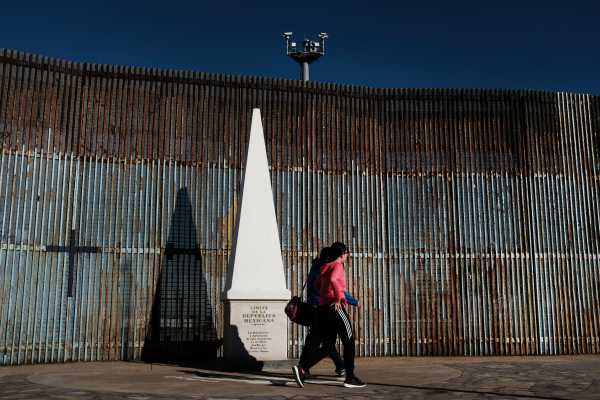
In February, NPR and the Intercept both published in-depth reports detailing harassment experienced by journalists, lawyers, and immigration activists who regularly interact with migrants along the US-Mexico border — harassment that seemed intended to deter their work. Leaked documents published on Wednesday by NBC 7 in San Diego indicate the problems they encountered were not the result of random chance.
Those documents indicate the International Liaison Unit (ILU), an organization that coordinates the sharing of intelligence between Mexico and the US, compiled information on 10 journalists — seven of them US citizens — a US attorney, and a large group of international immigration activists. Those people were then subjected to secondary screenings during which they were separated from sensitive documents and photographs, interrogated, and in at least one case even prevented from entering Mexico for unspecified reasons.
The documents detailing the operation were leaked to NBC 7 by an unnamed Homeland Security source, who told the station, “We are a criminal investigation agency, we’re not an intelligence agency. … This is an abuse of the Border Search Authority.”
Computer screenshots published by the station indicate the documents were produced in January by the ILU. Additional images indicate the ILU compiled dossiers on specific people — including photographs, birthdates, work descriptions, and information about whether or not they had been arrested or interviewed by authorities.
NBC 7 spoke to a number of affected journalists. One of them, freelance photojournalist Kitra Cahana, confirmed that the information in the dossier about her is correct and told the station that she was repeatedly subjected to secondary screenings in December and January by American and Mexican authorities.
Cahana said she was ultimately denied entry to Mexico, where she hoped to continue covering migrant caravans. During secondary screenings, Cahana said agents asked her questions about who was funding her work and about who she talked to while covering the caravan.
A number of journalists, lawyers, and activists shared similar experiences with NPR and the Intercept.
ACLU attorneys who spoke to NBC 7 characterized revelations about ILU’s dossier as “an outrageous violation of the First Amendment” and the “most recent example … in a steady stream of CBP abuse of authority.”
The CBP, meanwhile, released a statement that didn’t deny NBC 7’s reporting, but indicated the ILU’s program was a response to the breach of a border wall in San Diego in November.
“It is protocol following these incidents to collect evidence that might be needed to future legal actions and to determine if the event was orchestrated,” the CBP statement says. “CBP and our law enforcement partners evaluate these incidents, follow all leads garnered from information collected, conduct interviews and investigations, in preparation for, and often to prevent future incidents that could cause further harm to the public, our agents, and our economy.”
The Intercept reported that even before NBC 7’s reporting, Sen. Ron Wyden (D-OR) opened an investigation “into CBP’s newly revealed border crackdown.” Coincidentally, news of the ILU’s dossiers broke on the same day that the newly Democrat-controlled House Homeland Security Committee grilled Homeland Security Secretary Kirstjen Nielsen during her first public appearance before the new Congress.
News of the dossiers the government compiled on journalists, activists, and lawyers suggests she’ll face a different set of tough questions during a future hearing.
The news moves fast. To stay updated, follow Aaron Rupar on Twitter, and read more of Vox’s policy and politics coverage.
Sourse: vox.com






